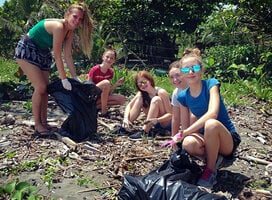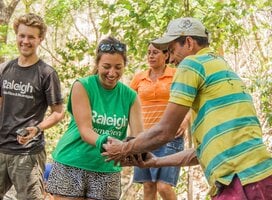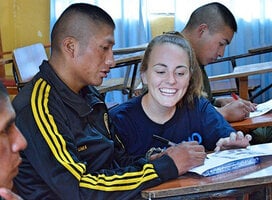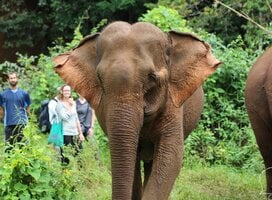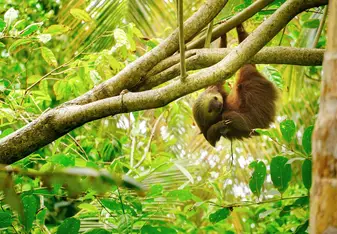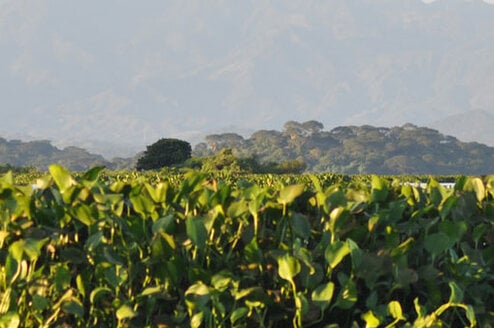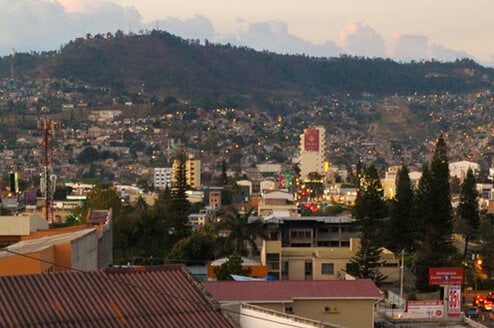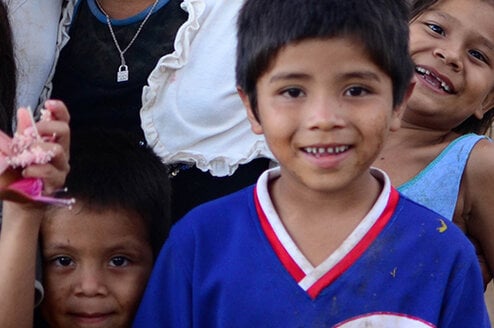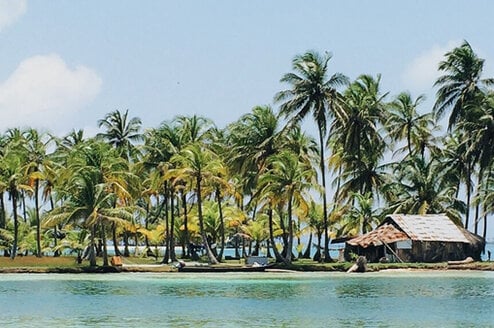Volunteer Programs in Costa Rica
Costa Rica is a wonderful destination for both travelers and passionate volunteers. It's home to beautiful beaches, tropical rainforests, exotic animals, and some of the friendliest people on earth. It's no wonder that over 2 million people visit the pristine beauty of this small Central American nation every year. Volunteering in Costa Rica provides you the opportunity to give a helping hand and enjoy these wonders first-hand.
For those who want to see another side of Costa Rica and immerse themselves in the culture and language for a longer period of time, there are plenty of opportunities to go as a volunteer. While overseas, you will get the chance to see a side of Costa Rica that few tourists ever do, getting to help with wildlife rehabilitation, conservation projects, and human rights.
Costa Rica's unofficial slogan is Pura Vida, which means "pure life." As a volunteer, you will learn just how much ¡Pura Vida! can change your life.
The country has no shortage of exciting volunteer opportunities, including working with local communities, preserving the environment, and taking care of sick animals. Read on for the most popular volunteer programs in Costa Rica:
Wildlife Rehabilitation
Every year, over one million tourists visit Costa Rica to see its amazing nature and wildlife. Few get the chance to work side-by-side with these creatures, however. While volunteering with an animal rehabilitation center in Costa Rica, you can get up close with sloths, monkeys, parrots, and maybe even a jaguar who needs your help. Many of these animals are rescued from illegal animal traffickers or injured as a result of habitat destruction. In these programs, you’ll be feeding animals, building enclosures, cleaning living spaces, and getting these animals ready to be released back into the wild.
Wilderness Conservation
25% of Costa Rica is designated as protected conservation land. This provides ample opportunity to get outside to help conserve the country's impressive wilderness and protect the plants and animals that call it home. Whether you're monitoring sea turtle nests on the coast or removing invasive plants in the jungles, you can be confident that this type of volunteer work directly contributes to protecting Costa Rica's pristine wilderness.
Yoga Programs
Many people flock to Costa Rica to practice yoga in a beautiful tropical setting. If you want to hone your sun salutations under a jungle canopy without paying the steep price of an all-inclusive yoga retreat, consider volunteering at a Costa Rican yoga center. Sometimes this involves teaching classes or doing a simple work exchange. If you're not a yoga teacher, there are always cleaning or administrative work to be done. In exchange for helping with the everyday operations, most volunteers are provided with accommodation, food, and yoga classes.
Human Rights Programs
Unfortunately, Costa Rica has long been wrestling with problems concerning domestic violence, human trafficking, and labor exploitation. Volunteers in Costa Rica are often needed to help with numerous programs that provide awareness and counseling to the community, or even to assist in administrative tasks like data collection. As a volunteer in a program working towards improving human rights issues in the country, you will get to know local communities on a more personal and intimate level.
Costa Rica is a relatively small country, but don’t let that fool you -- it still boasts a remarkable amount of diversity. You can find volunteer opportunities in small fishing villages, the capital city of San Jose, deep in the jungle, on remote beaches, or in cloud-shrouded mountains. Be sure to inquire about transportation to and from your volunteer location. Some parts of the country are well-connected by buses, but others may require private transportation.
Visitors to Costa Rica get a 90-day stamp in their passport. You do not need to get a special volunteering visa for Costa Rica. If you decide to stay for longer than three months, your visitor visa can be easily renewed by crossing into neighboring Panama or Nicaragua and crossing right back. Costa Rica is very strict with its requirement that visitors have proof that they will be leaving the country. This proof can come in the form of a plane or bus reservation out of Costa Rica before your 90 days are up. If you don’t have something to show before boarding your flight, you may be turned away at the airport.
<h4>Cost of living</h4>
While less expensive than North America and Europe, Costa Rica is the most expensive country in Central America. Imported goods are particularly pricey. Many restaurants and services in touristy areas may even be more expensive than those you’d find at home. Eating at local diners, known as <em>sodas</em>, is an economical alternative.
<h4>Housing & Accommodation in Costa Rica</h4>
<p>Your living arrangements in Costa Rica will vary depending on the type of volunteer program you select, but expect them to be quite basic. You may be set up with a host family, which is a great opportunity to get to know Costa Rican culture and hospitality. Alternatively, you may be bunking in communal housing with other volunteers. If you take part in wilderness conservation programs, you will likely spend at least some of your nights camping out in remote places to be closer to the ecosystems you’re protecting.</p>
Volunteer Programs in Costa Rica
Pagination
What People Are Saying
Related Volunteer Abroad Articles
Frequently Asked Questions
-
Can I volunteer in Costa Rica for free?
There are volunteer programs in Costa Rica that do not charge a fee to volunteer. However, your time in Costa Rica won't be completely free. You will still have to pay for your transportation to and from the airport and your plane ticket. Some programs offer housing and meals for free while other programs that charge for both. In addition to program fees, it's important to evaluate the ethics and mission of the company before choosing your volunteer experience.
Related Content -
Is Costa Rica expensive?
Costa Rica is more expensive than other countries in Central America, but can still be affordable. To give you a general idea, here are a few cost of living prices: $3 for a beer, $7 for a meal at a restaurant, and $350 to rent a one-bedroom apartment per month.
-
Do I need a visa to volunteer in Costa Rica?
If you have a passport from the USA, Canada, Japan, South Korea or Schengen area, you do not need a visa. Your passport (valid for three months upon entrance) will allow you to stay for up to 90 days.
-
Where can I volunteer in Costa Rica?
From jungles and fishing village to remote beaches and cloud forests, volunteer opportunities in Costa Rica are available across the country. Depending on the type of volunteer work, the capital city of San José, is also a great place to volunteer.

